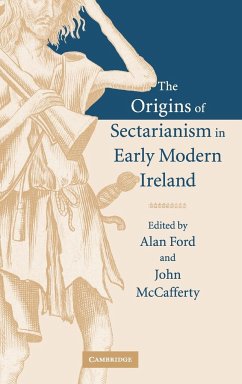
The Origins of Sectarianism in Early Modern Ireland
Versandkostenfrei!
Versandfertig in 1-2 Wochen
103,99 €
inkl. MwSt.

PAYBACK Punkte
52 °P sammeln!
Ireland is riven by sectarian hatred. This simple assumption provides a powerful explanation for the bitterness and violence which has so dominated Irish history. Most notably, the troubles in Northern Ireland have provided fertile ground for scholars from all disciplines to argue about and explore ways in which religious division fueled the descent into hostility and disorder. In much of this literature, however, sectarianism is seen as, somehow, a 'given' in Irish history, an inevitable product of the clash of the Reformation and Counter-Reformation, something which sprang fully formed into ...
Ireland is riven by sectarian hatred. This simple assumption provides a powerful explanation for the bitterness and violence which has so dominated Irish history. Most notably, the troubles in Northern Ireland have provided fertile ground for scholars from all disciplines to argue about and explore ways in which religious division fueled the descent into hostility and disorder. In much of this literature, however, sectarianism is seen as, somehow, a 'given' in Irish history, an inevitable product of the clash of the Reformation and Counter-Reformation, something which sprang fully formed into existence in the sixteenth century. In this book leading historians provide a detailed analysis of the ways in which rival confessions were developed in early modern Ireland, the extent to which the Irish people were indeed divided into two religious camps by the mid-seventeenth century, and also their surprising ability to transcend such stark divisions.




